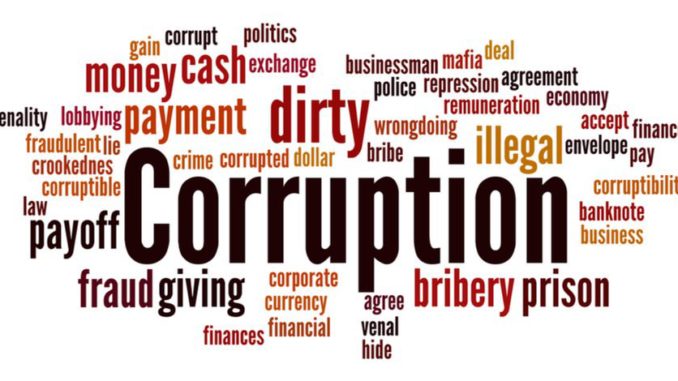
It is a fact that no country in the world is totally corruption-free. However some countries are better off than others in the Corruption Perception Index, as over 68 per cent of countries in the world have a serious corruption problem. It is on record that no fewer than $1trillion is paid in bribes every year, and even more stolen by fraud and deceit, while an estimated $2.6 trillion are stolen annually through corruption – a sum equivalent to more than five per cent of the global Gross Domestic Product (GDP). United Nations Development Programme (UNDP) statistics indicate that in developing economies, funds lost to corruption are estimated at 10 times the amount of official development assistance in these countries.
Unarguably, corruption is a complex social, political and economic phenomenon that affects all countries. It undermines democratic institutions, slows down economic development and contributes to governmental instability. It also attacks the foundation of democratic institutions by distorting electoral processes, perverting the rule of law and creating bureaucratic quagmires. No country is immune to corruption, as it equally affects education, health, justice system, prosperity and development. Corruption, no doubt is one of the biggest impediments to achieving the Sustainable Development Goals (SDGs).
It is, therefore, against this backdrop that each year since year 2003, December 9 is designated by the United Nations General Assembly as the International Anti-Corruption Day in an effort to highlight the negative impact of corruption on economic development and government stability. It is celebrated annually, to showcase the role of the UN’s Convention against Corruption in preventing further corruption. Thus, the fight against corruption must be waged headlong as is found in both the rich and poor countries, and as findings show, it hurts more of the poor people.
The International Anti-Corruption Day is meant to raise awareness of the corruption that exists in governments and societies all over the world and at both national and local levels. It is a day that helps to draw further attention to the negative effects that corruption in all its forms has on human society and wellbeing. To mark the day, wide-ranging campaigns focus on how tackling corruption is vital to achieving a better and prosperous society.
While this is on, it is sad to observe that in spite of repeated promises by successive governments to fight corruption headlong, Nigeria is still being bogged down by corruption. Year in, year out, surveys by different international organizations have continued to show a progressive decline in critical areas of the nation’s life. Since assuming office, President Muhammadu Buhari, has made the fight against corruption a major mantra of his administration. Regardless, the fight against corruption has not shown enough vigour as there are piles of corruption cases involving government officials and politicians that have been lingering for years while perpetrators roam freely in the country.
Invariably, it is becoming difficult finding any correlation between the usual claims of government and the reality on the ground. There seem to be little evidence of sincerity in the handling of cases of fraud, embezzlement and other forms of abuse both in the public and private sector. Also, there has been no significant progress in cases involving a number of former governors who were shielded from prosecution and punishment by the immunity clause in the constitution.
In our opinion, the situation is not helped by number of case files of other alleged corrupt persons that are gathering dust, no thanks to a legal process that allows for endless manipulation and senseless and illogical adjournments. To effectively tackle the monster of corruption, both the law and the judicial process need to be strengthened. One way of achieving this is for the institutions involved in the fight against corruption to purge themselves of political influence.
Also, what Nigeria needs as it grapples with the challenge of corrupt practices are decisive steps that can effectively combat the monster and ensure good governance. In our view, the country has sufficient laws to deal with the issue of corruption, in fact, few countries can match Nigeria with more anti-graft laws, but the problem, however, is that there is no political will, and a system that harbours sacred cows and the “untouchables” cannot claim to be serious in the fight against the malaise. Thus, as long as treasury looters walk free and use their stolen wealth to influence the course of justice, corruption will remain a way of life in Nigeria. But if the government can tackle this and defeat it, only then can the nation begin to pretend to be fighting corruption.
END

Be the first to comment